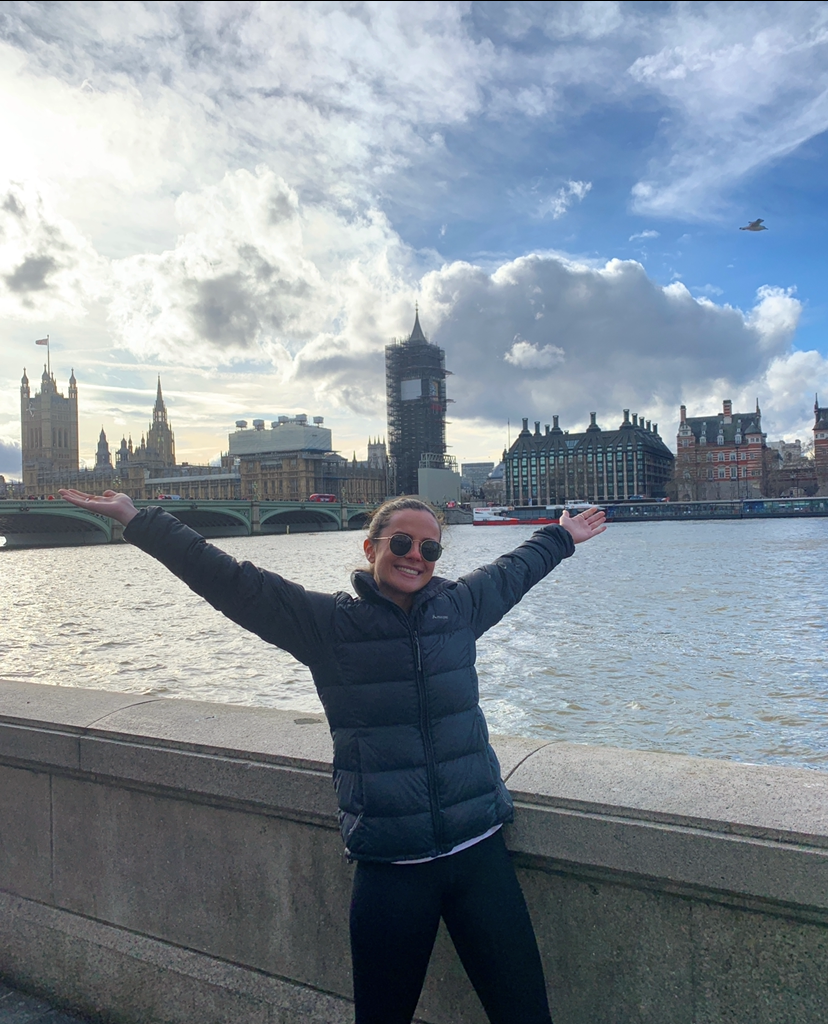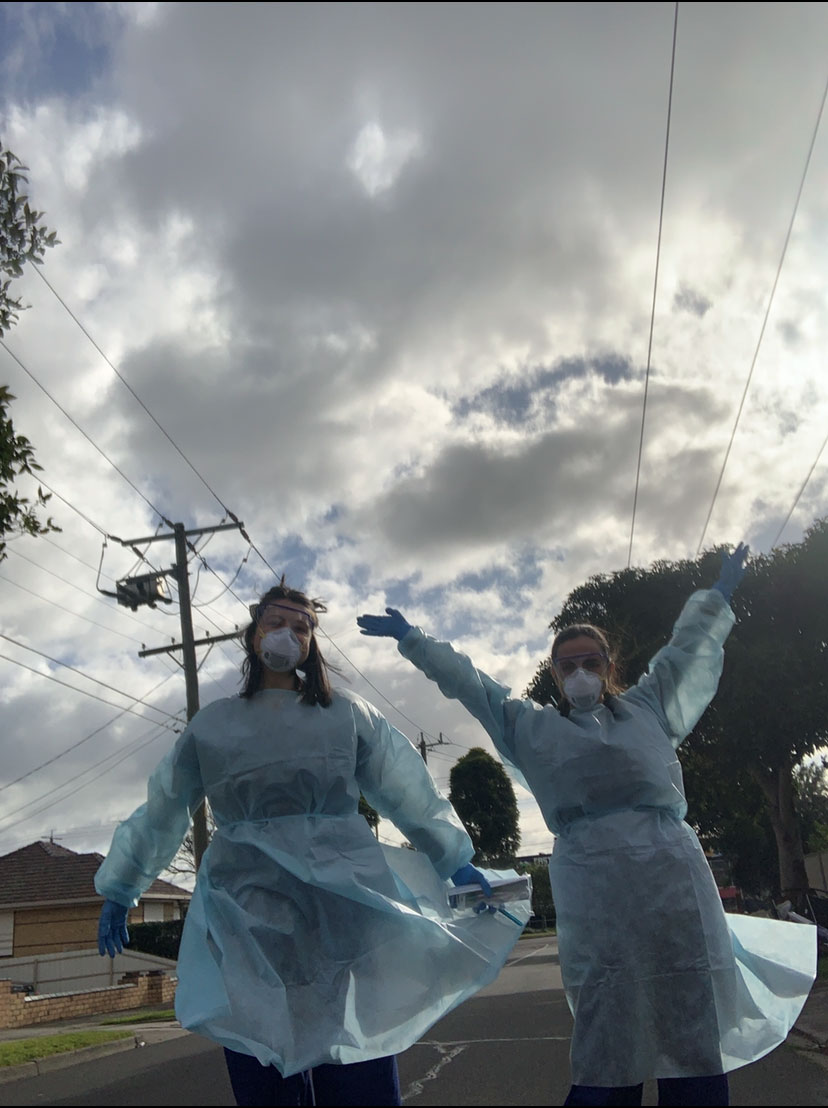19 May 2021
Article from April 2021 edition of INPractice

After catching COVID on a plane, a young nurse returned to the coronavirus coalface.
A year after Adelaide nurse Sarah Crocker contracted COVID-19 she still feels the lingering debilitating effects.
“Initially I recovered quite well and then I just suffered from post-viral fatigue ever since,” the 24-year-old says. “Every five or six weeks I just get waves of fatigue that I just can’t do anything for a day or two and then I’m back to normal again.
“No one really knows (why). I’ve had blood tests a few times and I’ve gone back to the doctor’s and my blood, all my levels appear to be fine. I’ve decided to self-administer (vitamin) B12 injections just for a bit of energy, I don’t know if it helps. They don’t really know how long it will last, they don’t know what causes it.
“This week I’ve felt fine, I’ve gone for a couple of 5 or 6km runs and next week I might not even go for a walk, it’s very up and down.”
A Registered Nurse, Ms Crocker caught the coronavirus on a flight home from London. A keen traveller, she lived in the British capital in 2019 and early 2020, working in schools as a teacher’s assistant on a casual basis in between traversing parts of Europe in her spare time.
“I looked into doing nursing over there and it’s quite full on and expensive to get registered with the NHS, so that put me off. So then I looked at other options,” says Ms Crocker, who graduated as an RN from the University of Adelaide in 2016. She left England in March last year when the pandemic hit.
“COVID blew up very quickly in London and I actually booked my flight and less than 48 hours later I was out of London, it was very sudden. There was talk the schools were starting to shut and then the Department of Foreign Affairs in Australia said ‘If you’re an Aussie living abroad and you want to get home do it ASAP’. So, I thought as soon as schools shut I don’t have a job so who knows how long it will go for, so I decided to come home.
“And then I caught COVID on the flight home. I got home late March just as it was starting to kick off in Australia, I was about the 230th case in SA.
Back then COVID was still quite new and it wasn’t mandatory to get tested, Ms Crocker recalls. “It was actually quite hard to be allowed to have a test, you had to fit certain criteria of having the symptoms and whatnot,” she says. “When I had a fever and I told the doctor I’d just come from London I qualified for a test.”
“It was about a week or two before hotel quarantine came in for international arrivals. So I came home and lived with my mum and sister but I didn’t pass it on to them, so that was good.
“I had a high temperature but it only lasted about four or five hours. Looking back I think I just confused a lot of my symptoms with jet lag. It was the fever that raised the alarm.
“I was a bit shocked (at the positive result) but also on my flight home it was just so crowded and there wasn’t the opportunity to find masks or hand sanitiser, everyone had just sold out. I was a school nurse for the last three months I was in London and we were struggling to get sanitiser and masks, there was just no stock left.”
Ms Crocker said the reaction of friends to her positive result was “a lot of concern” mixed with “a bit of excitement”, given that she was the first in her social circle to catch the global headline-hugging bug.
“I think it was like ‘Ooh, I wonder what’s going to happen, how sick she’ll be, if she’ll recover well’? Obviously also concerned,” she says.
"My doctor was very vested in how I was going and SA Health called me all the time and it was very much tell us everything you're feeling".
"At the time they were quite worried that young, healthy, fit patients were deteriorating within an hour, so that was probably my main concern. But I was very lucky, I didn't go to hospital.
"I was very tired the whole time and I got quite bad breathlessness through the day. Days seven, eight and nine were my worst days and I'd just be sitting in bed all day purse-lipped breathing, struggling to get air in and out, which is very bizarre to feel puffed out when you're otherwise fit and healthy and just resting in bed.
"I can't imagine what it would be like if you had pre-existing respiratory issues."

Despite her personal ordeal, Ms Crocker, a casual nurse with the Flinders Medical Centre, recovered to throw herself back into the COVID deep end, testing people at the Victoria Park COVID Clinic and even volunteering to work in crisis-strewn Melbourne during July's Stage 4 lockdown.
She had no qualms about braving the COVID coalface.
"I think it was more the opposite, I sort of thought "I know what I'm getting myself into", in a sense. And the doctors told me if it's the same strain you'll probably be immune to it for at least six to 12 months. I didn't really have any fears of catching it."
An even bigger challenge was dealing with the boredom of two-weeks mandatory hotel quarantine on her return to Adelaide. The intrepid nurse passed the time by walking marathons in her itsy, bitsy room, garnering quite a social media following with her video posts and national news coverage both here and in New Zealand. She even completed an epic 55km "ultra-marathon" in eight hours, by doing countless 30m laps of her room.
"I was just so bored in hotel quarantine I thought I'll fill my time doing this. But I'm not usually a marathon walker at all," she says.
Ms Crocker says the COVID Clinic team at Victoria Park are still getting up to 800 people a day seeking swab testing (at the time of going to print). Tell people she’s endured her own battle with the superbug and she still gets the ‘Ooh, wow, I haven’t met anyone that’s had it before’ treatment.
“People sort of have the same response, ‘You’re brave to come back and then work in the midst of it again’, but I guess we’re so lucky in South Australia we’ve had a pretty low risk workplace in terms of community transmission, which is lucky,” she says.
“I’d love to go back to London, I miss it immensely, I was meant to stay there until April 21, so I’d love to go back.
“But no plans to go back whilst it is like it is now.”
Click
here to read the April 2021 edition of INPractice.